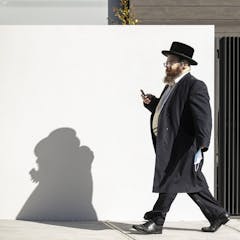
Articles sur White supremacy
Affichage de 41 à 60 de 193 articles

When young people plan a mass shooting, especially at a school, they typically reveal their plans in advance. Two scholars weigh in on whether the warning signs are being heeded in the right way.

A suspect apparently motivated by a white supremacist agenda shot dead 10 shoppers. Analysis shows that mass shootings – and those at grocery stores – are on the rise.

Asian American mothers face a caregiving crisis, fueled by the pandemic but rooted in histories of anti-Asian discrimination and violence.

A vital step in achieving the kind of action and change that CRT proposes is for each of us to be intentional and steadfast in our convictions to dismantle racist and oppressive power structures.

New Zealand has a high concentration of extremist alt-right groups relative to similar countries. The challenge now is to head off hate crime and violence.

Reconciliation can help address the interrelated global problems of climate crisis, interspecies displacement, gendered and racialized violence and white supremacist structures.

A perception that the benefits and status people believe themselves entitled to have been wrongfully taken away by unforeseen forces motivates ‘freedom convoy’ protesters.

When the “freedom convoy” used the Terry Fox statue as part of their demonstration, people were outraged. It showed the public still finds value in protecting a memorial that represents their values.

A study of global far-right movements and their hashtags on Twitter have revealed similarities that display a reliance on long-held myths, including the idea of a “golden age of freedom.”

Police in Ottawa and other Canadian cities have been community-focused and protected the enshrined right to protest amid the ‘freedom convoy,’ but now must stand up for law and order for everyone.

The popularity of zombie apocalyptic and post-apocalyptic narratives has emerged from some of the same economic and cultural currents that gave rise to Trump’s presidency.

bell hooks, the Black feminist writer and intellectual, died on Dec. 15 aged 69. Scholar and activist Karsonya Wise Whitehead provides a personal reflection on what bell hooks meant to her life.

The lionization of Rittenhouse by the right proves that even skin colour is not enough to protect white people who support anti-racism movements.

Critics of new terrorism laws argue they do not necessarily eradicate hate-fuelled violence — and they could make structural and institutional violence seem more palatable.

A secret plan to destabilise the new democratic government reveals the failed ambitions of the apartheid state security apparatus and confirms what is known about the brutality of the period.

Jon Gruden’s resignation signals a much needed shift that hopefully forces franchises to be introspective when shaping their team’s social climate.

The Democratic Alliance posters were not a bolt from the blue. They were consistent with messages the party’s current leadership has been sending out for some time.

Nearly one in five defendants in the prosecutions undertaken in response to the January 6 US Capitol attack had served in the military.

Few people embody the contradictions of U.S. history like the author of the Star Spangled Banner, someone who denounced slavery as a moral wrong but rejected racial equality.

The increased prominence of antisemitic incidents may have you wondering: has antisemitism always been part of the Australian social fabric, or are we facing a newer, more sinister trend?
